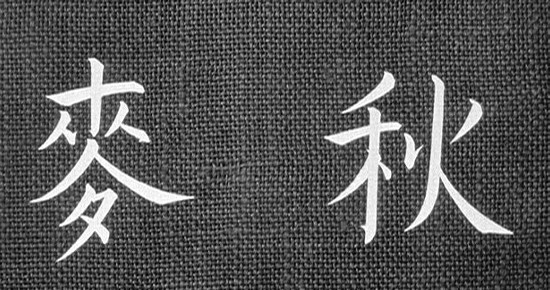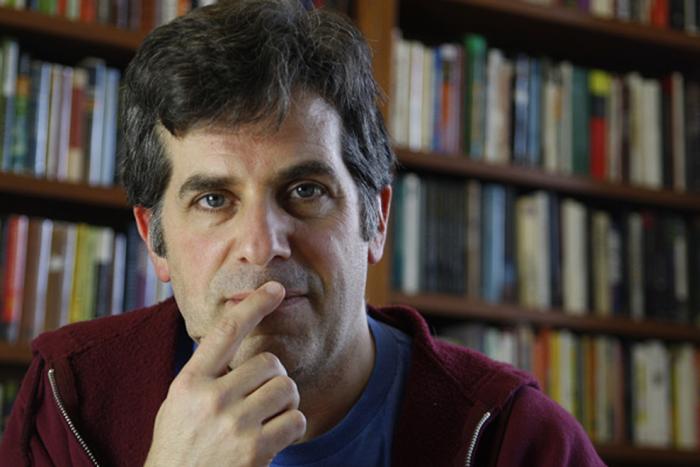Every week or so, Sook-Yin Lee and Adam Litovitz have a movie date. Then they talk about the movie. Taken from the vault and discussed this week: Early Summer (1951) by Yasujiro Ozu.
ADAM: I thought it was appropriate that the first image in the movie is not a landscape or a character, but the title, Early Summer, set against burlap—a coarse, densely woven fabric. The first sound we hear, at the same time, is of a choir singing together. There’s an immediate sense of how interwoven the characters we’re about to watch are going to be. The family vibrates together, despite their differing of opinions. The next shot is of a dog slowly wandering out of frame on a desolate beach landscape, and then the camera holds on this emptiness. Along with this dense, burlap-like community, there’s a sense of individualities straggling through the movie, and later this is paralleled in various ways.
SOOK-YIN: The opening is super-Japanese-y with long, dissolving shots of waves, and calligraphic titles, and a choir of voices. It lulls you in and casts a spell. Then, we’re brought into the home of a typical Japanese family circa-1951. It’s almost Leave it to Beaver, but not.

SOOK-YIN: The women are always smiling and affable and servile. It’s like a mask. Noriko’s boss complains that modern women expect men to be kind to them. He thinks kindness shouldn’t be assumed, but only respect between the sexes, yet it’s that same boss who calls women “perverse” if they’re unmarried: evil, conniving, and too knowing. He insults the women in the office and laughs at his own jokes. The women have to smile and appease him. It was a difficult position for women in Japanese culture at that time, having to make the transition between the old and the new, and we see how Noriko must carefully negotiate it.
ADAM: A lot of that maneuvering comes down to seemingly serious gestures, like choosing a lifetime mate, and at the same time, a constant game play. Just as Noriko’s boss laughs at his own jokes and makes his own games, we see the other characters constantly doing this, whether it’s adult males sitting down for a board game, or kids taking a train set very seriously, or young women chasing each other around a beach. Seriousness and play coexist. There’s necessarily seriousness at the heart of game play, and game play at the heart of seriousness.
For a movie with marriage as such a key component, we never see one. One of Noriko’s friends gets married in the middle of the movie, yet we don’t see it. We simply see the leftover cake being eaten. Traditional romance is unseen or elided in the film – there’s no kissing or cuddling -- but there’s a sense that loving relationships exist among families in rerouted ways, not simply between couples. It’s people sharing leftovers, or doing the laundry together, or making big decisions in strange ways.
SOOK-YIN: Marriage becomes not an act of passion or romance but an extension of the framework of family. It’s not an individual or a couple that shines, but how they support the larger structure of the clan. Towards the end, there’s a marriage procession with a woman in full, traditional regalia, and Noriko’s mother and other family members are watching it from a distance. There’s a bittersweet, melancholy resignation as the elderly mother notes, “A bride is passing. I hope she’ll be happy.” There’s a deep pathos in the world of women. Marriages do not necessitate happiness, and it’s the luck of the draw, particularly when brought about by these cultural pressures. There’s solitude and loneliness for these women even as they’re surrounded by their brood, and what comes to be their family. Essentially, there’s been a sacrifice of self, often with large consequences. At the time, it was extraordinary that Ozu could see this. He was, in his subtle way, trying to question those values.
Which makes me wonder about the kinds of cultural values we live by and perpetuate today. How will we be seen in sixty years time?
--
Illustration by Chester Brown






